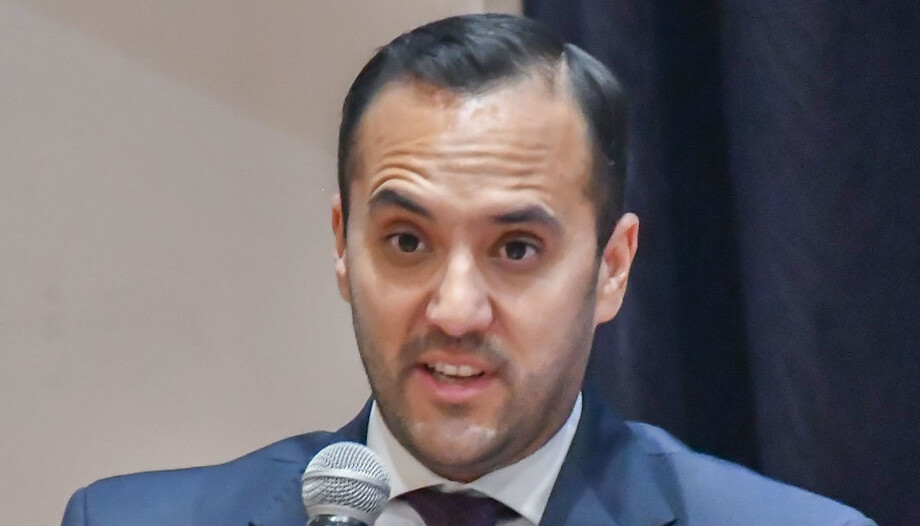Juan Carlos Holguín Maldonado (Quito, 1983) was appointed by President Guillermo Lasso Mendoza as Minister of Foreign Affairs and Human Mobility in January 2022 until 2024.
This businessman is also director and founder of several civil society organizations, and was a fellow of the Konrad Adenauer Foundation, focusing his training in the fields of regional integration mechanisms, democracy and governance.
Holguín focused on the presentation he gave as part of the International Eucharistic Congress The meeting was held in Quito, on how the search for fraternity can renew the political work in Ecuador and the importance that the Consecration of the nation to the Heart of Jesus in 1874 continues to have in this renewal.
Let's start by talking about the consecration of Ecuador to the Sacred Heart of Jesus, a significant historical moment. What inspired you to focus on this topic?
-For me, to speak of the consecration of Ecuador to the Sacred Heart of Jesus and the Immaculate Heart of Mary is fundamental, not only as a historical fact, but also as a spiritual reality that continues to influence our present.
The idea of publicly consecrating Ecuador to the Sacred Heart of Jesus had been suggested to President Gabriel García Moreno by Father Manuel Proaño, National Director of the Apostleship of Prayer. In his response in one of the letters that these two historical characters exchanged, the former president, with some hesitation, product of his sincerity, says: "And will Ecuador be an offering worthy of the Heart of the Man-God? Does justice reign in the forum, peace in the families, unity in the citizens, fervor in the temples?" and the question we must ask ourselves today is if we are still worthy of that consecration.
And my answer is: definitely yes. But with some nuances.
In your speech you mentioned that Ecuador, despite its rich religious history, continues to face important challenges. How do you see this tension between the past of faith and current problems?
-Exactly. Today we face new challenges. History shows us that we have gone through times of division and conflict since the time of independence. These problems are not exclusive to the past. Even today, there is a lack of fraternity and unity in the country, both politically and socially.
Problems such as corruption, inequality, and increasing violence suggest that the values that should guide us as a nation are often lost in the midst of struggles for power and self-interest. This disconnect between the religious ideal and the current political and social reality generates a sense of fracture and an urgent need for reconciliation.
It is the foundations of faith that could offer a path towards the resolution of present conflicts. Christian principles of fraternity, justice and peace, if applied with authenticity in public and political life, could be the engine for overcoming divisions and restoring trust in institutions.
It is a call to rekindle that spirit of consecration and align it with current efforts for greater social cohesion and a policy oriented to the common good. Only when the country looks to the sky again, as it did in the past, will it be able to find the way to overcome the current challenges with hope and unity.
You mentioned that the political pendulum is no longer as ideological as it was in previous decades. Could you explain this phenomenon further?
The political pendulum, especially in Latin America, used to be clearly marked by left- or right-wing ideologies. Today, that pendulum is less ideological and more pragmatic. Voters are looking for immediate solutions to their problems, which has allowed the rise of populist proposals from both the left and the right.
This phenomenon reflects a shift towards a more reactive politics, where the pendulum swings back and forth between the ruling party and the opposition, rather than between ideological currents. Social networks and the post-truth have intensified this process, allowing the rapid spread of simplified narratives that fuel discontent and polarization.
The irruption of technology has transformed the political scenario, facilitating the spread of fake news and populism, which weakens serious ideological debate. In this context, the pendulum no longer swings back to a struggle of ideas, but to the search for immediate solutions, often regardless of the long-term cost in terms of governance and democratic stability.
Finally, he spoke of hope and mentioned the importance of fraternity as the basis for building a solid democracy. What message would you give to Ecuadorians in the face of the current challenges?
-Despite the challenges, I remain optimistic. Ecuador has great opportunities and unique comparative advantages. Our youth, our natural wealth and our history project us into a future full of hope.
I am positive and hopeful: our country has always looked to the sky to find its north. We have unique comparative and competitive advantages that project us into the future with great hope. The equatorial position and its distance to the sun, allow us to have the best flowers, the best cocoa or the best shrimp in the world. Having the dollar as our currency, beyond being a shield against the temptation of governments to print more currency, allows us to have stability and low inflation.
The responsibility will lie with its politicians and citizens, who must necessarily be convinced that democracy can only be built on harmony, consensus and fraternity. Indeed, this will be a challenge of today's world, full of wars and with many challenges.







